Evaluating Senior Housing Options: A Checklist for CCRCs
There are a dizzying array of options for senior living. At Aging Wisely, we help many families with the decision process and transition to a senior living community. In this article, we will share some of our wisdom about CCRCs as a senior housing option.
What is a CCRC? A Continuing Care Retirement Community (CCRC) offers various levels of care within one campus. There are all types of set-ups for these communities and a wide array of price ranges, available services and styles. A typical CCRC offers independent living (some may even have villas/homes), assisted living and skilled nursing. Some may offer memory care as well.
CCRCs have traditionally been set up as “buy-ins”, where you pay an up-front entry fee to the community along with a monthly fee (plus possibly some a la carte fees). While this is most common, there are also CCRC style communities which offer all levels of care in a straight rental arrangement. This is fairly common in our area in Florida (Tampa Bay/Pinellas County) and can offer extra flexibility for “snowbird” residents who may not wish to commit long-term. The more traditional arrangement, however, is that one pays a large entry fee up front in order to have long-term access to the various levels of care as needed.
There are three basic types of contracts for buy-in CCRCs:
- Life Care or Extended Contract: This typically requires the largest up-front fee, but offers unlimited assisted living and skilled nursing care.
- Modified Contract: This contract offers a set of services provided for a period of time. When that time expires, other services can be obtained, but for higher monthly fees.
- Fee-for-Service Contract: This comes with a lower initial fee but residents pay for assisted living and nursing services at market value at the time needed.
Here is a checklist for evaluating Continuing Care Retirement Communities:
- Know your budget and compare true costs. Read the fine print of the contract and consider your risk tolerance (i.e. someone with little risk tolerance who can afford it may feel more comfortable having the guarantee of a life care contract).
- Find out about the stability of the ownership. Be prudent with your investment as financial issues or other problems could leave you in the lurch. Also, find out about your rights and protections if you choose to buy in to a community. Here is a great article on the Wall Street Journal about Assessing the Financial Stability of a CCRC.
- Review all facilities and available services. When you tour, you will likely look at the independent living where you will probably start your stay. However, don’t neglect to see the assisted living, skilled nursing and any special care units. Find out, in particular, about the quality of care at the skilled nursing unit which you may need at some point at least for rehabilitative care. If that facility is poorly rated, some of the security you are paying for may not be worth it.
- Think about the long-term. Will you be willing to move from what will become your home in to another apartment/section of the facility? While having options on one campus sounds great, it will still feel like a move to you. If you don’t take advantage of the additional care levels, will it be worth the money for a CCRC? What if you enter as a couple and one person needs a higher level of care before the other?
- Involve key people in the discussion. Talk to your financial advisor when looking at your budget and what might be most logical for you. Consider how long-term care insurance plays in to this decision (if you have it). Consider having your attorney review any contract before you sign. Talk about the decision with trusted family members. Consider bringing in a professional advisor such as a geriatric care manager, who can give you access to the whole array of eldercare options that might fit your needs.
As eldercare professionals, we often share the advice that people typically wait too long to consider senior living options and could benefit from more proactive thinking. As I recently spoke to my 90-year old grandfather and friends from his CCRC, they echoed this sentiment. Most of their cohort only consider a retirement facility after health and care (or household management) needs have become problematic, when they could benefit from some of the positive aspects of retirement living sooner. It might be worth considering senior living options as a part of your overall retirement and healthcare planning, rather than thinking of it as a last resort.
Give us a call at 727-447-5845 if we can help with your search for assisted living or retirement communities in the Tampa Bay, Florida area. We’re here to help you determine what eldercare options are best, with expert input and solutions for YOU.
This list offers some top considerations about a CCRC. There are many additional details to consider and we will have additional articles on this and related topics. You can sign up to receive our latest blog posts via email. Leave us a comment if you have a question or topic you’d like to see us cover.

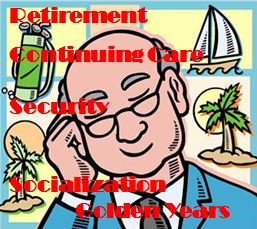
 Some of the most common questions our care managers get revolve around how to approach concerns with aging parents. Talking to friends recently reinforced how many of us worry about this. We see a growing concern, such as a parent losing their hearing or having more difficulty managing the household, and we wonder how to bring it up and how they will react. This also relates to “the talk” about future planning (i.e. will it be reasonable to stay in your large home if Dad dies, do you have long-term care insurance/what can you afford, contingencies for handling affairs).
Some of the most common questions our care managers get revolve around how to approach concerns with aging parents. Talking to friends recently reinforced how many of us worry about this. We see a growing concern, such as a parent losing their hearing or having more difficulty managing the household, and we wonder how to bring it up and how they will react. This also relates to “the talk” about future planning (i.e. will it be reasonable to stay in your large home if Dad dies, do you have long-term care insurance/what can you afford, contingencies for handling affairs).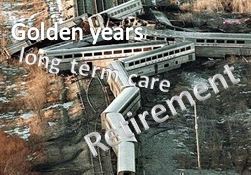 Working with so many families with different situations at Aging Wisely, you might be surprised that we see some common mistakes. Or, more accurately, some common assumptions that people tend to make that lead to misguided eldercare planning or unanticipated problems later. Whether you are in your golden years, helping an aging parent or just want to be wise about planning ahead, knowing these eldercare pitfalls can help you.
Working with so many families with different situations at Aging Wisely, you might be surprised that we see some common mistakes. Or, more accurately, some common assumptions that people tend to make that lead to misguided eldercare planning or unanticipated problems later. Whether you are in your golden years, helping an aging parent or just want to be wise about planning ahead, knowing these eldercare pitfalls can help you.
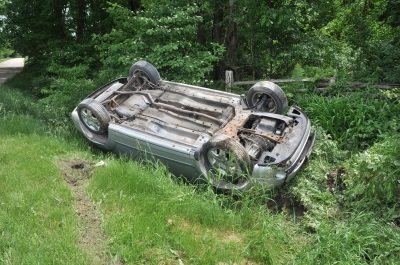 It often makes the news when elderly drivers get into accidents in Florida, such as the case of a
It often makes the news when elderly drivers get into accidents in Florida, such as the case of a  While celebrating Mother’s Day and Father’s Day, we reflected on how relationships with our parents change over time. Senior caregiving in particular affects the relationship between parent and child in a number of ways. Here we share some information about changing relationships in senior caregiving and tips for making the most of your time with elderly parents.
While celebrating Mother’s Day and Father’s Day, we reflected on how relationships with our parents change over time. Senior caregiving in particular affects the relationship between parent and child in a number of ways. Here we share some information about changing relationships in senior caregiving and tips for making the most of your time with elderly parents. 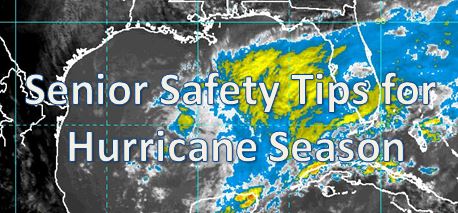 Frail elderly people are particularly vulnerable during hurricanes. Of the 1,330 people known to have perished along the Gulf Coast as a result of Hurricane Katrina, 71% of those in Louisiana were older than 60 years, 47% were older than 75 years, and at least 68 died in nursing homes. Individuals with special needs, medical conditions, disabilities and those who are reliant upon caregivers and outside support face particular difficulties in managing during and after a natural disaster.
Frail elderly people are particularly vulnerable during hurricanes. Of the 1,330 people known to have perished along the Gulf Coast as a result of Hurricane Katrina, 71% of those in Louisiana were older than 60 years, 47% were older than 75 years, and at least 68 died in nursing homes. Individuals with special needs, medical conditions, disabilities and those who are reliant upon caregivers and outside support face particular difficulties in managing during and after a natural disaster.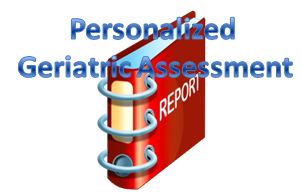 Caring for elderly parents long distance? Aging Wisely conducts Florida geriatric care assessments on behalf of many families who live elsewhere around the country and world and are concerned about their elderly loved ones in Tampa Bay. Here we will share with you the primary benefits of having a geriatric care management assessment done and the the types of solutions it offers for long-distance caregivers.
Caring for elderly parents long distance? Aging Wisely conducts Florida geriatric care assessments on behalf of many families who live elsewhere around the country and world and are concerned about their elderly loved ones in Tampa Bay. Here we will share with you the primary benefits of having a geriatric care management assessment done and the the types of solutions it offers for long-distance caregivers. Being a senior care business dedicated to helping elders in Florida, we focus a lot of time and resources on hurricane preparedness this time of year. Over the years, we have had numerous trainings and informational sessions for our staff and we have developed a process to assist our elder and disabled clients living in Florida with their planning.
Being a senior care business dedicated to helping elders in Florida, we focus a lot of time and resources on hurricane preparedness this time of year. Over the years, we have had numerous trainings and informational sessions for our staff and we have developed a process to assist our elder and disabled clients living in Florida with their planning.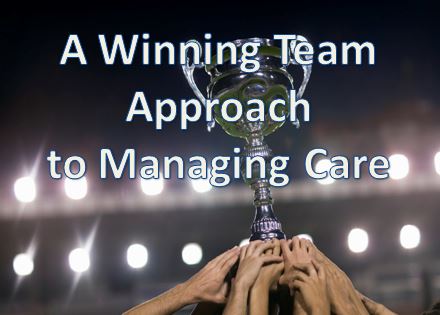 We advocate a team approach to senior care management in all aspects. A team approach can help reduce caregiver burnout, add different perspectives and fresh ideas and ultimately, provide a more comprehensive approach for better senior care. Your senior care team might be larger than you think…from your siblings to Mom’s church community and neighbors as well as all the medical and direct care professional who might help. Rallying that team support can make a big difference to you and your loved one.
We advocate a team approach to senior care management in all aspects. A team approach can help reduce caregiver burnout, add different perspectives and fresh ideas and ultimately, provide a more comprehensive approach for better senior care. Your senior care team might be larger than you think…from your siblings to Mom’s church community and neighbors as well as all the medical and direct care professional who might help. Rallying that team support can make a big difference to you and your loved one.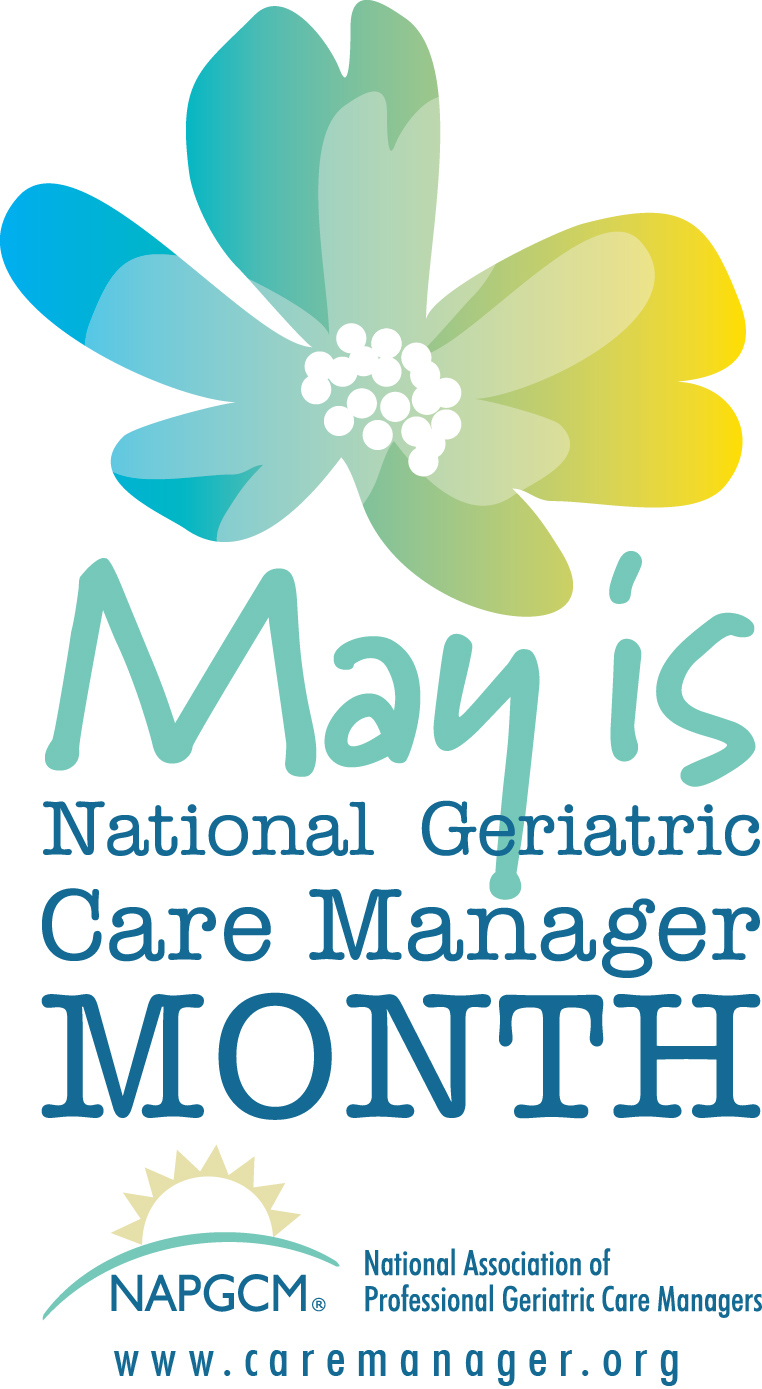 May is designated as National Geriatric Care Manager month. Though we are always working on eldercare education, May is a special time for us to highlight the benefits of working with a geriatric care manager. At Aging Wisely, we do a lot of outreach to make sure caregiving families know their options and where to turn for help. We invite you to share and spread the word!
May is designated as National Geriatric Care Manager month. Though we are always working on eldercare education, May is a special time for us to highlight the benefits of working with a geriatric care manager. At Aging Wisely, we do a lot of outreach to make sure caregiving families know their options and where to turn for help. We invite you to share and spread the word!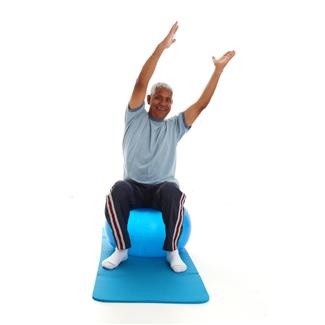 At Aging Wisely, our goal is to enable every individual we work with to live the most fulfilling life possible, with utmost dignity, focusing on their physical, mental, spiritual, family and financial wellbeing. This means when our geriatric care managers work with a client we are focused on helping them live a life that is most fulfilling to them, given their circumstances and options. We do this through a holistic and personalized approach. This is based on the understanding of how much different areas of wellbeing intersect. For example, greater fitness can bring reduced pain and decreased depression. The ability to stay engaged and continue favorite activities can improve your mental wellbeing and help you stay connected to your community.
At Aging Wisely, our goal is to enable every individual we work with to live the most fulfilling life possible, with utmost dignity, focusing on their physical, mental, spiritual, family and financial wellbeing. This means when our geriatric care managers work with a client we are focused on helping them live a life that is most fulfilling to them, given their circumstances and options. We do this through a holistic and personalized approach. This is based on the understanding of how much different areas of wellbeing intersect. For example, greater fitness can bring reduced pain and decreased depression. The ability to stay engaged and continue favorite activities can improve your mental wellbeing and help you stay connected to your community. Bob: When a Fall is More Than a Fall
Bob: When a Fall is More Than a Fall Mary: Communication Confusion in the E.R.
Mary: Communication Confusion in the E.R. Lucille: Why Am I Here?
Lucille: Why Am I Here?
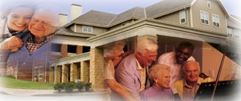
 Popular Downloads
Popular Downloads


 Get Our Newsletter!
Get Our Newsletter! Mission Statement
Mission Statement

